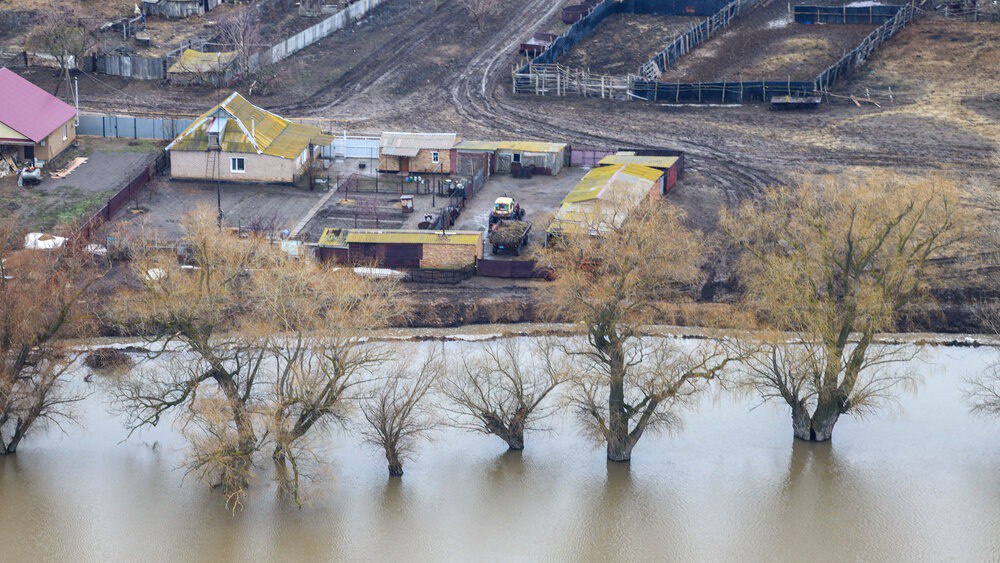BISHKEK (TCA) — The official launching ceremony of the Central Asia-South Asia Electricity Transmission and Trade Project (CASA-1000) took place on May 12 in Tursunzade city located 60 kilometers from Dushanbe, the capital of Tajikistan. The event was attended by Tajik President Emomali Rahmon, Prime Minister of Kyrgyzstan Sooronbai Jeenbekov, Prime Minister of Pakistan Nawaz Sharif, and Chief Executive of Afghanistan Abdullah Abdullah.
It was planned earlier that the delegation of Kyrgyzstan will be headed by President Almazbek Atambayev, who reportedly was due to arrive in Tajikistan on an official visit to sign a border delimitation treaty. This agreement would put an end to years of disputes between the two countries on border issues. However, the visit did not take place since the parties failed to reach a compromise on all disputed issues.
The CASA-1000 project provides for the export of electricity from Kyrgyzstan and Tajikistan to Afghanistan and Pakistan through high-voltage power lines. The project costs $1 billion, and Kyrgyzstan’s share is $233 million.
Kyrgyzstan and Tajikistan have abundant clean hydropower resources with water cascading from the mountains. The two countries have a surplus of electricity during the summer while Afghanistan and Pakistan suffer from chronic electricity shortages which hinder their economic development.
CASA-1000 is scheduled to be completed by 2018. Tajikistan and Kyrgyzstan will be able to supply annually up to 5 billion kilowatt-hours of electricity to Afghanistan and Pakistan after the completion of the project. Tajikistan is expected to supply 75 percent of the electricity.
The project is being supported by the World Bank, Islamic Development Bank, United States Agency for International Development (USAID), US State Department, UK Department for International Cooperation (DFID), and Australian Agency for International Development (AusAID).
The project is not only an important energy project, but also a demonstration of political will and readiness of the participating countries for long-term cooperation, Kyrgyz Prime Minister said.
In the current fast-growing economies of South Asia, ensuring of energy security is a very important task for all governments in the region. The implementation of the CASA-1000 project will be a favorable factor for the sustainable development of Central and South Asian countries, he said. The main principle of the CASA-1000 project is mutually beneficial cooperation taking into account national interests of all the project participants.
Kyrgyzstan and Tajikistan will have new perspectives to build new generating capacity and supply electricity to the fast-growing South Asian market. In turn, Afghanistan and Pakistan will receive a new impetus for sustained social and economic development, said Jeenbekov, stressing that Kyrgyzstan and Tajikistan will export exceptionally clean electricity produced by hydropower stations.
To fulfill its obligations under the project, Kyrgyzstan has commissioned the Datka substation, which within the CASA-1000 project will be connected to the Sughd substation in Tajikistan. Kyrgyzstan is also reconstructing the Toktogul hydropower plant and At-Bashi HPP and modernizing the Bishkek thermoelectric power plant.
The project is open to all interested parties including Uzbekistan, representatives of the four countries stated. The Central Asian countries have been arguing on the use of water for many years. Uzbekistan officially left the unified energy system of Central Asia in 2009. According to Uzbek authorities, it was necessary to ensure the country’s energy security. The unified power system was set up in the Soviet Union, a unitary state, but the situation had changed, and the energy system participants began to uncontrollably consume the electrical energy to their advantage which negatively affected other countries, they said.
When the CASA-1000 construction is complete, electricity will go through new high-voltage transmission lines from Kyrgyzstan to Tajikistan (447 km), and on to Afghanistan and Pakistan (750 km). The CASA-1000 transmission line will carry 300 megawatts to Afghanistan and 1,000 megawatts to Pakistan from HPPs in Kyrgyzstan and Tajikistan.
According to Tajik President Rahmon, the production capacity of Tajikistan’s water resources is more than 527 billion kilowatt-hours, of which only 5 percent is being used. Every summer, the country loses about 5 billion kilowatt-hours, which could be useful to other countries. In addition, the project will help the country achieve energy independence.
Abdullah Abdullah said that Afghanistan would only play a transit role in CASA-1000 as it seeks to develop its own hydroelectric power potential.
Both the suppliers and consumers of electricity will win from this project, US Deputy Assistant Secretary for Central Asia Daniel Rosenblum said. The US has allocated $15 million for the project. Rosenblum believes that the CASA-1000 project will show that countries can negotiate not only technical but also political issues.
“The World Bank is extremely happy to see that countries from both Central Asia and South Asia regions are demonstrating strong commitment to the regional cooperation, addressing their energy challenges together by developing the vision of Central Asia South Asia Regional Electricity Market,” Annette Dixon, Vice President South Asia, World Bank said. “CASA-1000 will also help reduce the countries’ dependency on costly, polluting oil-based power generation.”









